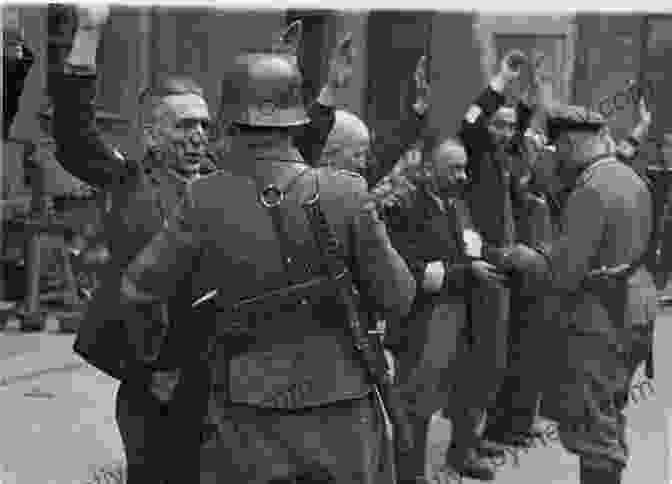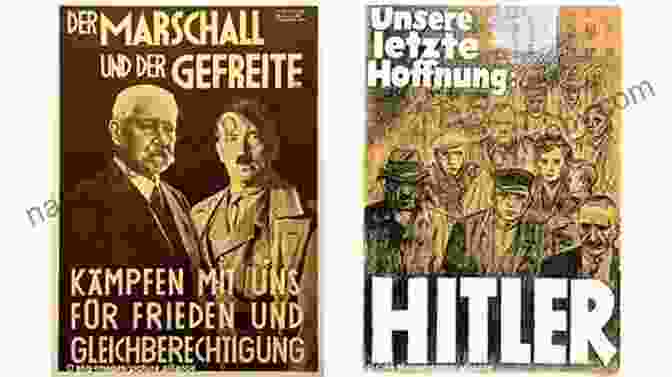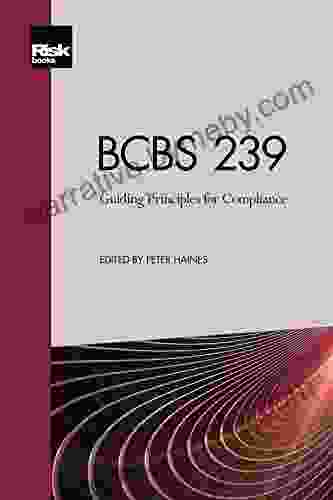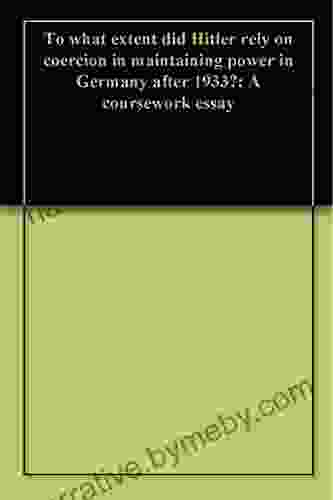To What Extent Did Hitler Rely on Coercion in Maintaining Power in Germany?

The rise of Adolf Hitler and the Nazi Party to power in Germany in the 1930s marked a dark chapter in human history. Hitler's regime employed a combination of terror, propaganda, and political maneuvering to establish and maintain its grip on the German people.
While coercion played a significant role in Hitler's rise to power, the extent to which he relied on it to maintain his authority remains a subject of ongoing debate among historians.
5 out of 5
| Language | : | English |
| File size | : | 28 KB |
| Text-to-Speech | : | Enabled |
| Screen Reader | : | Supported |
| Enhanced typesetting | : | Enabled |
| Word Wise | : | Enabled |
| Print length | : | 9 pages |
| Lending | : | Enabled |
Coercion as a Central Tool of Nazi Rule
Coercion, defined as the use of force or threats to compel obedience, was a cornerstone of Nazi ideology and practice. The regime employed a vast apparatus of terror and intimidation to suppress dissent, eliminate opposition, and enforce its authority.
The Gestapo, the Nazi secret police, played a central role in this campaign of coercion. The agency conducted mass arrests, tortured and executed political opponents, and established a network of concentration camps to detain and exterminate those deemed threats to the regime.

In addition to the Gestapo, other organizations, such as the SS and the SA, used violence and intimidation to enforce Nazi policies. The regime also employed propaganda to glorify violence and portray opponents as enemies of the state.
The Role of Propaganda and Political Maneuvering
While coercion was a powerful tool in Hitler's arsenal, it was not the only means by which he maintained power. The Nazi regime also used propaganda and political maneuvering to consolidate its authority.
Nazi propaganda, skillfully crafted by Propaganda Minister Joseph Goebbels, played a crucial role in shaping public opinion and creating a climate of fear and obedience. The regime controlled the media, censored dissenting voices, and used rallies and mass events to promote its ideology.

Hitler also employed political maneuvering to outmaneuver opponents and secure his position. He exploited divisions within the political landscape, made alliances with key figures, and used legal loopholes to strengthen his authority.
The Decline of Coercion and the Rise of Consent
As Hitler's regime became more entrenched, the reliance on coercion gradually declined. The regime succeeded in eliminating most organized opposition and suppressing dissent. This created a climate of fear and obedience that made overt coercion less necessary.
Additionally, the regime began to cultivate a sense of consent among the German people. Economic recovery, social welfare programs, and military successes contributed to a sense of national pride and support for the regime.

The extent to which Hitler relied on coercion in maintaining power in Germany is a complex issue that has been the subject of much debate. While coercion was a central tool of Nazi rule in the early years, its importance gradually declined as the regime consolidated its authority.
The Nazi regime's use of propaganda, political maneuvering, and the cultivation of consent allowed it to maintain its grip on power for over a decade. However, the legacy of coercion and terror left an indelible mark on German society and serves as a reminder of the dangers of unchecked authoritarianism.
5 out of 5
| Language | : | English |
| File size | : | 28 KB |
| Text-to-Speech | : | Enabled |
| Screen Reader | : | Supported |
| Enhanced typesetting | : | Enabled |
| Word Wise | : | Enabled |
| Print length | : | 9 pages |
| Lending | : | Enabled |
Do you want to contribute by writing guest posts on this blog?
Please contact us and send us a resume of previous articles that you have written.
 Book
Book Novel
Novel Page
Page Chapter
Chapter Text
Text Story
Story Genre
Genre Reader
Reader Library
Library Paperback
Paperback E-book
E-book Magazine
Magazine Newspaper
Newspaper Paragraph
Paragraph Sentence
Sentence Bookmark
Bookmark Shelf
Shelf Glossary
Glossary Bibliography
Bibliography Foreword
Foreword Preface
Preface Synopsis
Synopsis Annotation
Annotation Footnote
Footnote Manuscript
Manuscript Scroll
Scroll Codex
Codex Tome
Tome Bestseller
Bestseller Classics
Classics Library card
Library card Narrative
Narrative Biography
Biography Autobiography
Autobiography Memoir
Memoir Reference
Reference Encyclopedia
Encyclopedia Avery Carl
Avery Carl John Edgar Wideman
John Edgar Wideman Charles Thompson
Charles Thompson Becky Goddard Hill
Becky Goddard Hill Barry Johnston
Barry Johnston Aubrey A Jones
Aubrey A Jones Shari Mezrah
Shari Mezrah Paul Pritchard
Paul Pritchard Leanda De Lisle
Leanda De Lisle Barry Pickthall
Barry Pickthall Shirley Roland Ferguson
Shirley Roland Ferguson Baltasar Gracian
Baltasar Gracian Barry Diggens
Barry Diggens David Hackett Fischer
David Hackett Fischer Beca Aberdeen
Beca Aberdeen Yair Zakovitch
Yair Zakovitch B C Lienesch
B C Lienesch Sean Hepburn Ferrer
Sean Hepburn Ferrer Barbara Goldsmith
Barbara Goldsmith Rohit Bhargava
Rohit Bhargava
Light bulbAdvertise smarter! Our strategic ad space ensures maximum exposure. Reserve your spot today!

 Isaiah PriceStar Runner: An Unforgettable Sci-Fi Adventure That Will Captivate Readers of...
Isaiah PriceStar Runner: An Unforgettable Sci-Fi Adventure That Will Captivate Readers of...
 Ian MitchellDive into the Witiker Well of Wondrous Magic Items: An Enchanting Collection...
Ian MitchellDive into the Witiker Well of Wondrous Magic Items: An Enchanting Collection... Emanuel BellFollow ·11.6k
Emanuel BellFollow ·11.6k Yasushi InoueFollow ·4.1k
Yasushi InoueFollow ·4.1k Ryūnosuke AkutagawaFollow ·4.3k
Ryūnosuke AkutagawaFollow ·4.3k Frank ButlerFollow ·11.2k
Frank ButlerFollow ·11.2k Jake CarterFollow ·16k
Jake CarterFollow ·16k Thomas MannFollow ·3.2k
Thomas MannFollow ·3.2k Derrick HughesFollow ·8.2k
Derrick HughesFollow ·8.2k Amir SimmonsFollow ·11.8k
Amir SimmonsFollow ·11.8k

 Ian McEwan
Ian McEwanWhy Didn't Anyone Say Anything? Uncovering the Hidden...
By [Author's...

 William Wordsworth
William WordsworthArthurian Legendarians: Faithless One - Part One – A...
In the realm of legendary tales, the...

 Corey Hayes
Corey HayesSSAT ISEE Prep Test: Arithmetic Review Flash Cards Cram...
Are you preparing for the SSAT or ISEE exam?...

 Robert Louis Stevenson
Robert Louis StevensonUnveiling the Essential Guide to Compliance: BCBS 239...
In the ever-evolving...

 Javier Bell
Javier BellJust Peachy: A Tale of Sweetness and Sassiness
Immerse yourself in a...

 Brent Foster
Brent FosterStep-by-Step Instruction Manual to Building a Real Estate...
Are you eager to embark on the...
5 out of 5
| Language | : | English |
| File size | : | 28 KB |
| Text-to-Speech | : | Enabled |
| Screen Reader | : | Supported |
| Enhanced typesetting | : | Enabled |
| Word Wise | : | Enabled |
| Print length | : | 9 pages |
| Lending | : | Enabled |








